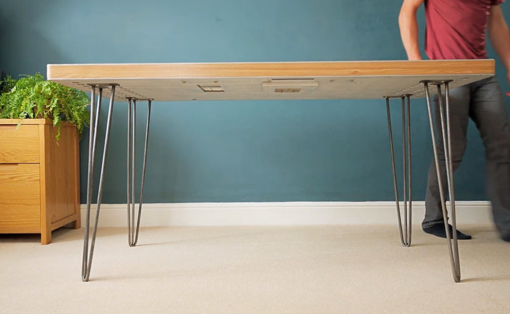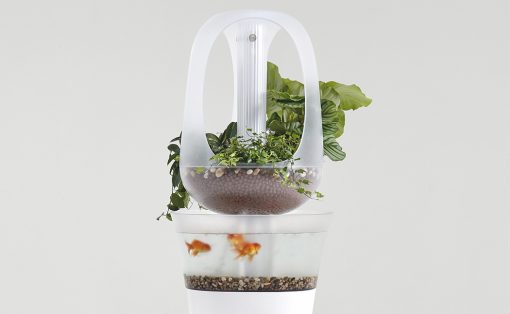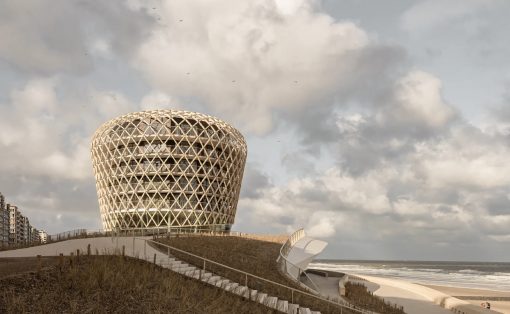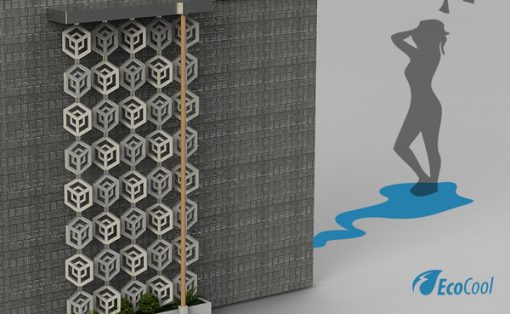
With the world turning topsy turvy since the pandemic hit us, living in a sustainable, conscious, and smart manner has never been more imperative. The architecture around us should seamlessly integrate with, and nourish the planet, not drain her resources and reduce her lifespan. Being at one with Planet Earth, while taking rigorous care of her has never been more of a priority. In an effort to encourage an eco-friendly way of life, sustainable and eco-friendly architecture has been gaining immense popularity among architects! Architects have been designing sustainable homes, cabins, hotels, and even floating cities! These architectural designs aim to harmoniously merge with nature, co-existing with it in peace, and allowing us to live in equilibrium with the environment. They reduce their carbon footprint and encourage a green and clean lifestyle. And, not to mention they’re aesthetically and visually pleasing as well! From the ‘Telsa of prefabricated homes’ to the world’s first floating city in South Korea – these architectural designs will convert you into sustainable architecture advocates!
1. OM-1


Don’t you just wish sometimes that you could “build” a house online and then order it just the way you like it? Well, now you actually can to some extent as a company called Dimensions X is aiming to be the Tesla of prefabricated homes. Plus, just like the environmentally friendly car company whose model they are following, the houses they will be offering homes that are energy efficient and will offer less carbon footprint.
Why is it noteworthy?
Australian entrepreneur Oscar Martin partnered with architect Peter Stutchbury to create a company that can offer people their prefabricated homes with a few clicks on their website. The process isn’t yet as simple as ordering a Tesla but they do have an online configurator that will tell you how much it will cost you as soon as you build your prefab home and make certain changes to it. There are modules and elements that you can modify to make it your own.
What we like
- An energy-efficient home with a small carbon footprint
- You can choose things like the length and size of the entire house as well as placements of doors and windows, finishes, orientations, and other elements that you can personalize
What we dislike
- No complaints!
2. Wattle Bank Home
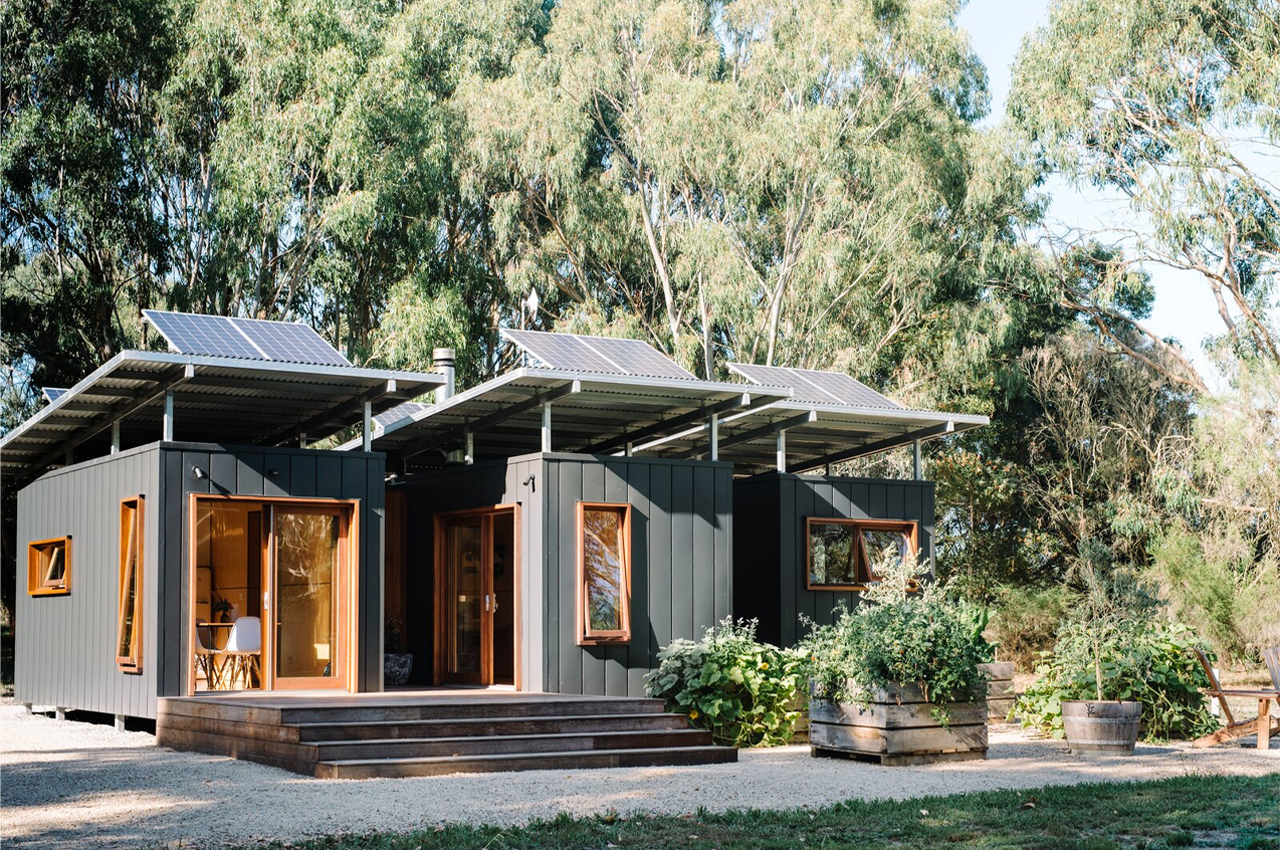
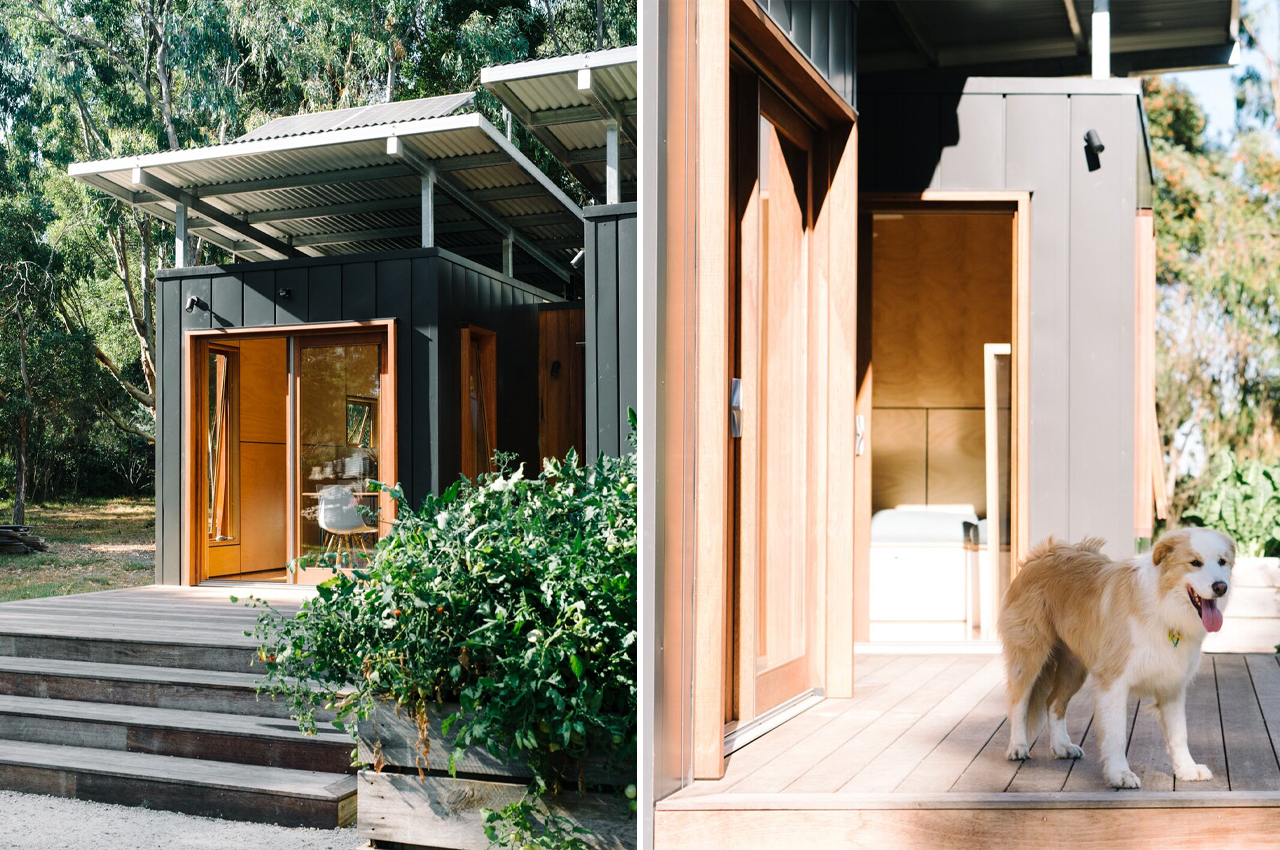
Situated on a plot of land on Amy’s parents’ farm, the couple’s Wattle Bank home was designed and built by the modular home building company, Modhouse, founded by Amy’s parents Mark and Melissa Plank. Each 20-foot shipping container that comprises the tiny home connects to one another via integrated passageways. These hallways also help make the most of the available living space by hosting utility rooms, like the laundry and entryways. Throughout the home, floor-to-ceiling entryways and windows give the feeling of indoor-outdoor living, adding some extra space to the interior as well.
Why is it noteworthy?
While downsizing our lifestyle requires letting go of many luxury comforts, it also makes room for simpler life pleasures. Sure, getting rid of the pool might hurt a little, but more green space allows for more plant cultivation and harvesting. For one Australian couple, Amy Plank and Richard Vaughan, downsizing meant disbanding from domestic duties for the freedom to surf, garden, and enjoy nature whenever and however they like. Hoping to make their dream of a downsized, sustainable lifestyle a new reality, Plank and Vaughan found the freedom they hoped for in shipping container architecture. Merging three shipping containers together to form a 530-square-foot tiny home, Plank’s and Vaughan’s Wattle Bank home fits the bill.
What we like
- Provides a feeling of indoor-outdoor living
- Built using eco-friendly materials
What we dislike
- Not much to distinguish it from other shipping container-based architecture out there
3. Shell House


Japanese architect Tono Mirai is known as the pioneer of something called “earth architecture,” and his latest creation, Shell House, is a cabin in the middle of the forest that seems to have sprouted out of the ground. The 625-square-foot cabin is in the forested mountains of Karuizawa, Nagano, with a view of Mount Asana, Honshu’s most active volcano.
Why is it noteworthy?
It is a shell-shaped structure with the west and north elevations closed while the east and south sides are open. The house is elevated four feet above the ground so moisture won’t seep in and over the years, the materials used will develop a rich patina.
What we like
- Built using local timbers like Japanese red pine, cypress, and cedar
- Aims to “evoke the life force of nature”
- The entire house is able to adjust or respond to weather conditions, whether it’s the humid summers or the freezing winters
What we dislike
- No complaints!
4. The Rain Harvest Home
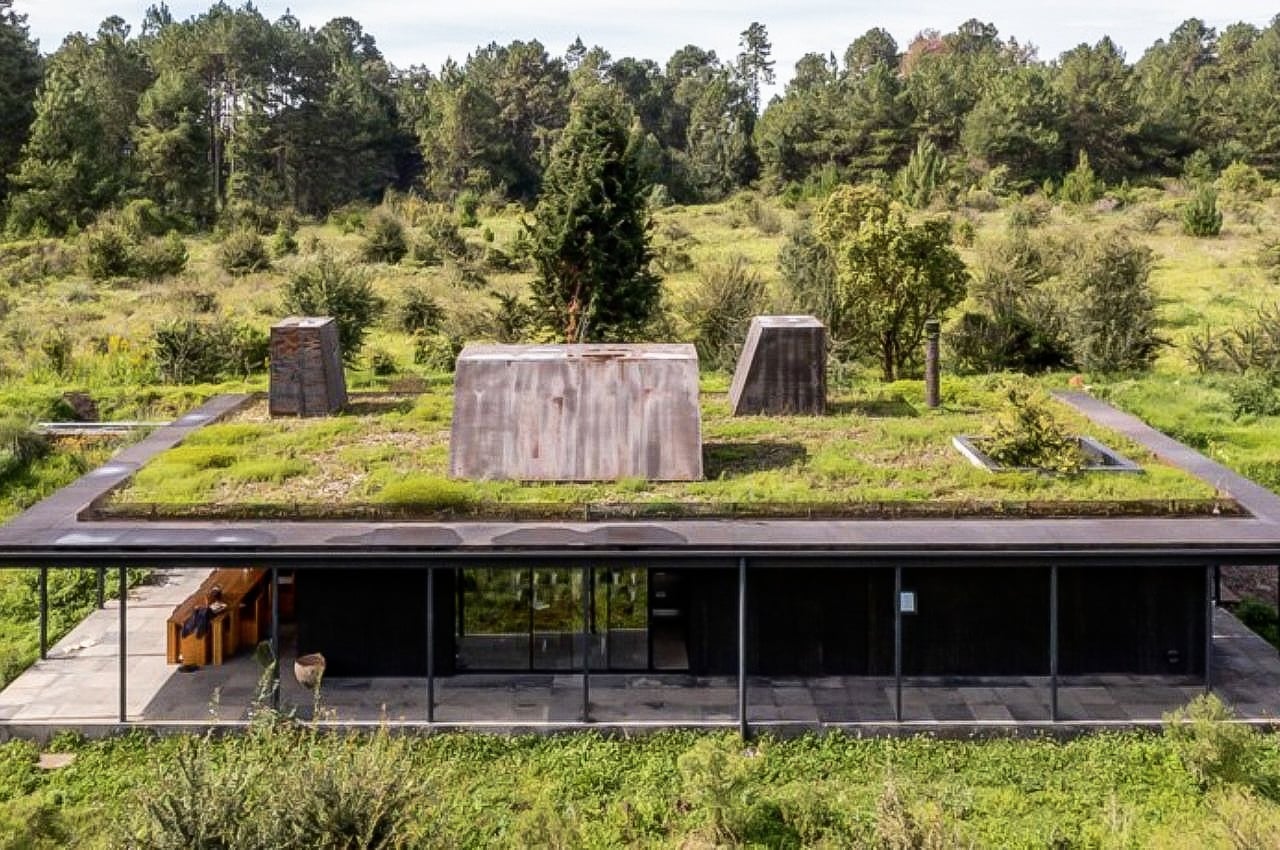

Even though I know I will probably never be able to live in one, I definitely like looking at homes that are located in the middle of nature. Of course, it still needs to have some kind of modern conveniences as a city girl like me still loves her creature comforts. But the idea of living in a luxurious but eco-friendly home near mountains and trees and rivers has a certain, romantic appeal, even if that will most likely remain just a dream.
Why is it noteworthy?
The Rain Harvest Home seems to meet all of the criteria I was mentioning above as it is located in a nature reserve in Valle Bravo, just two hours away from Mexico City. It’s actually more than just a house, although the house itself is already pretty amazing in itself. It also has an architect’s studio and a detached bathhouse just a few steps away from the main house.
What we like
- A green roof that seems to be hovering above the house
- Net-zero structure
What we dislike
- The raw and unpolished aesthetics may not appeal to everyone
5. OCEANIX Busan
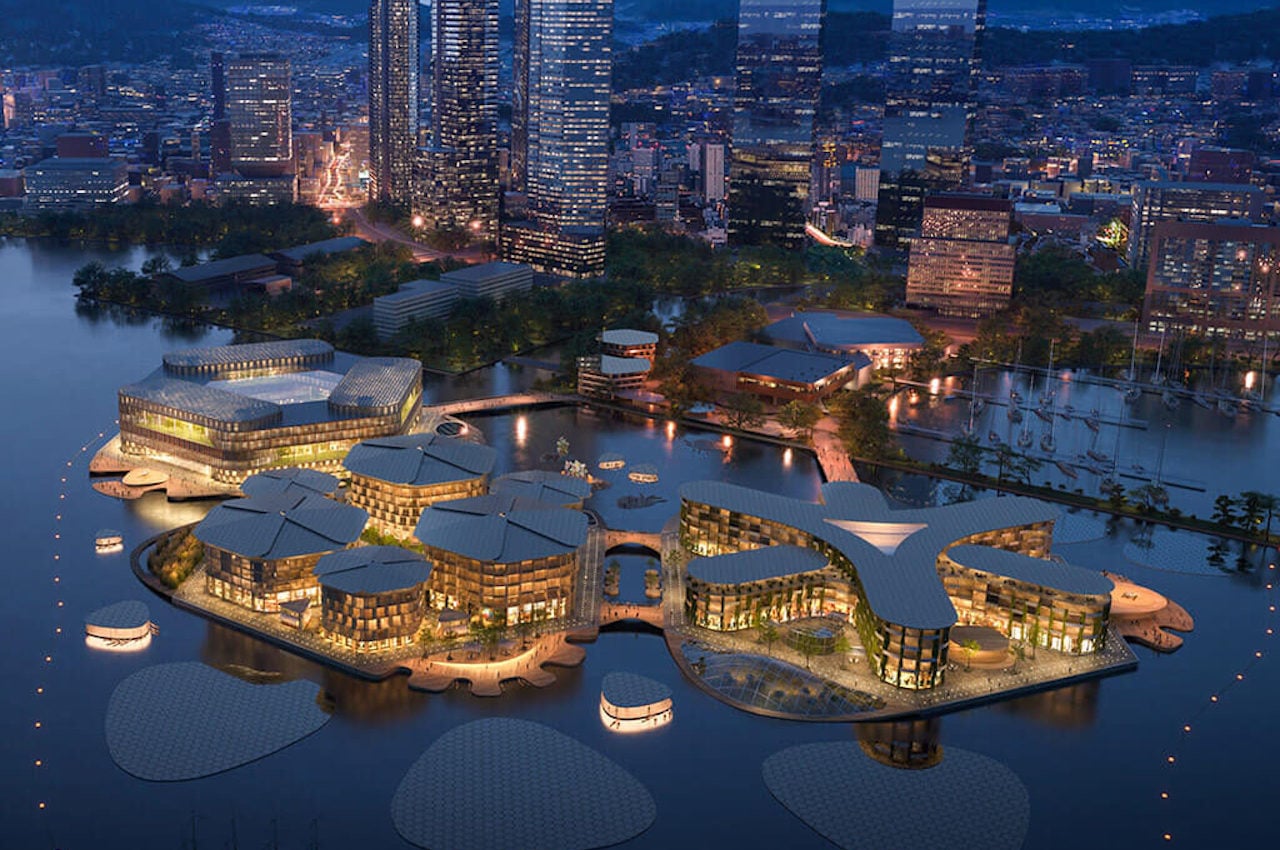
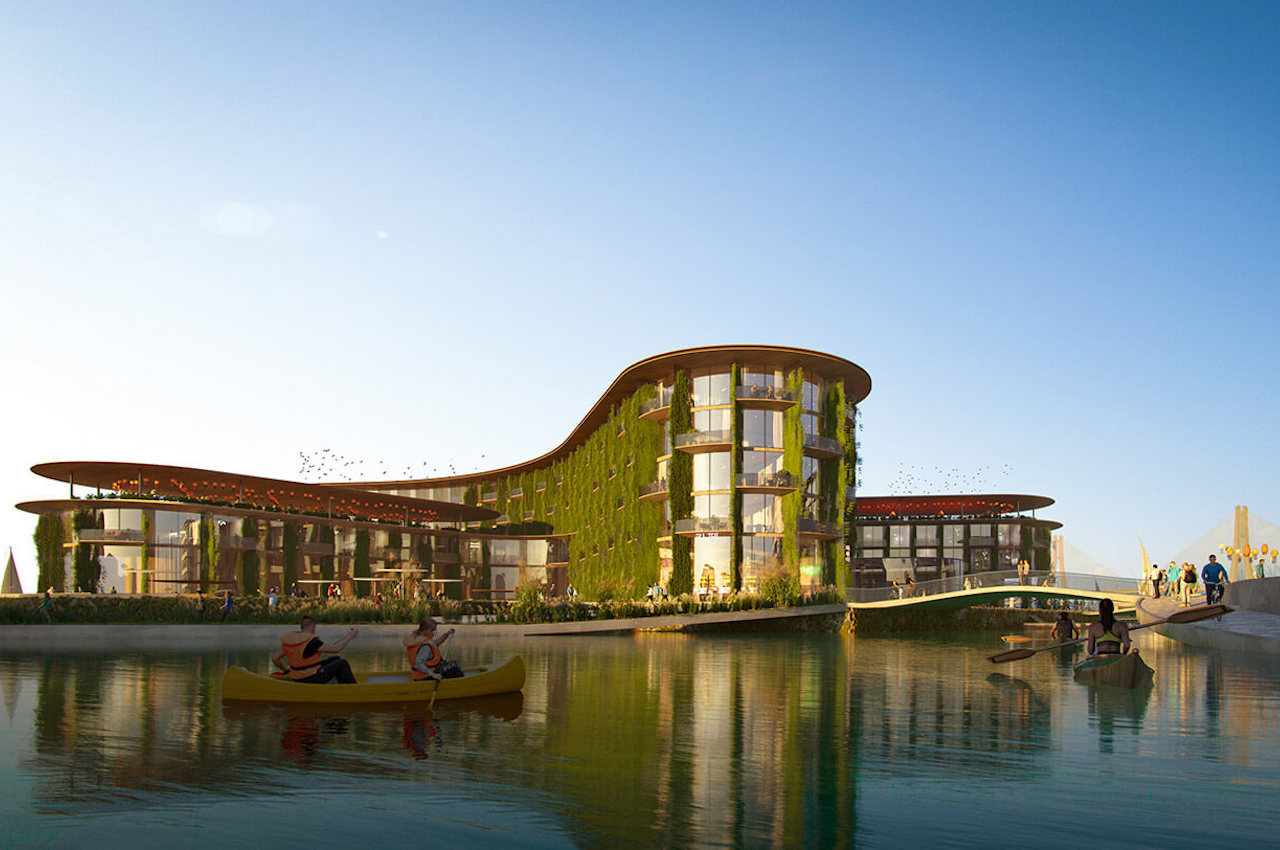
Oceanix has showcased a prototype of a floating city. It’s a project of the developer firm together with the United Nations and the Busan city government. The floating city is a more resilient and sustainable version of the key shipping hub.
Why is it noteworthy?
Officially called OCEANIX Busan, the floating city is an upcoming destination for visitors and travelers. It’s a unique tourist site that offers organic dining from local restaurants, harbor-view guestrooms, skylit greenhouse amenities, and communal terraces. There are eco-retail options on the elongated ground level, complete with waterfront views. All these can be found in the Lodging Platform which is just one of the many platforms available in the floating city.
What we like
- Food is grown in the garden right on the hydroponic towers available
- Sustainable, adaptable, and scalable
What we dislike
- It’s still a concept!
6. Easyhome Huanggang Vertical Forest City Complex
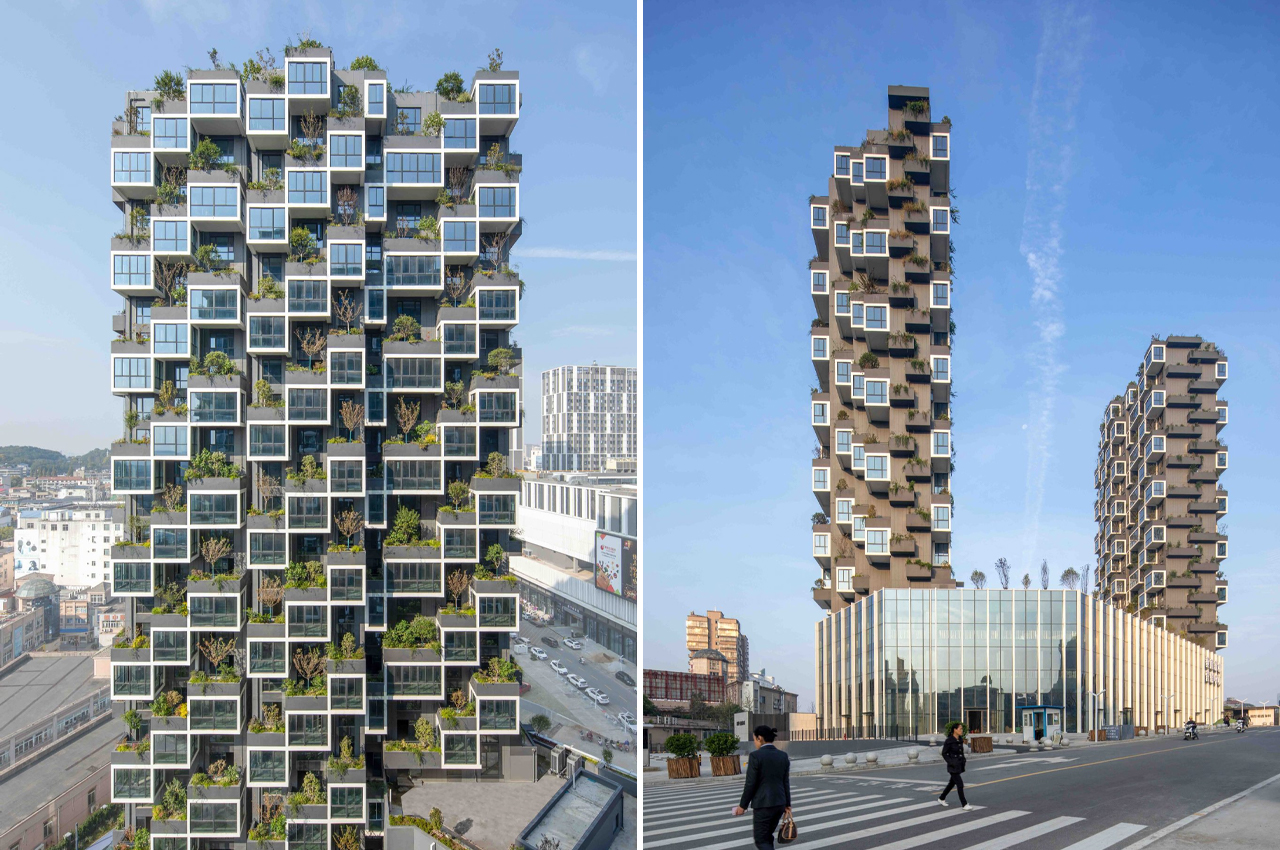
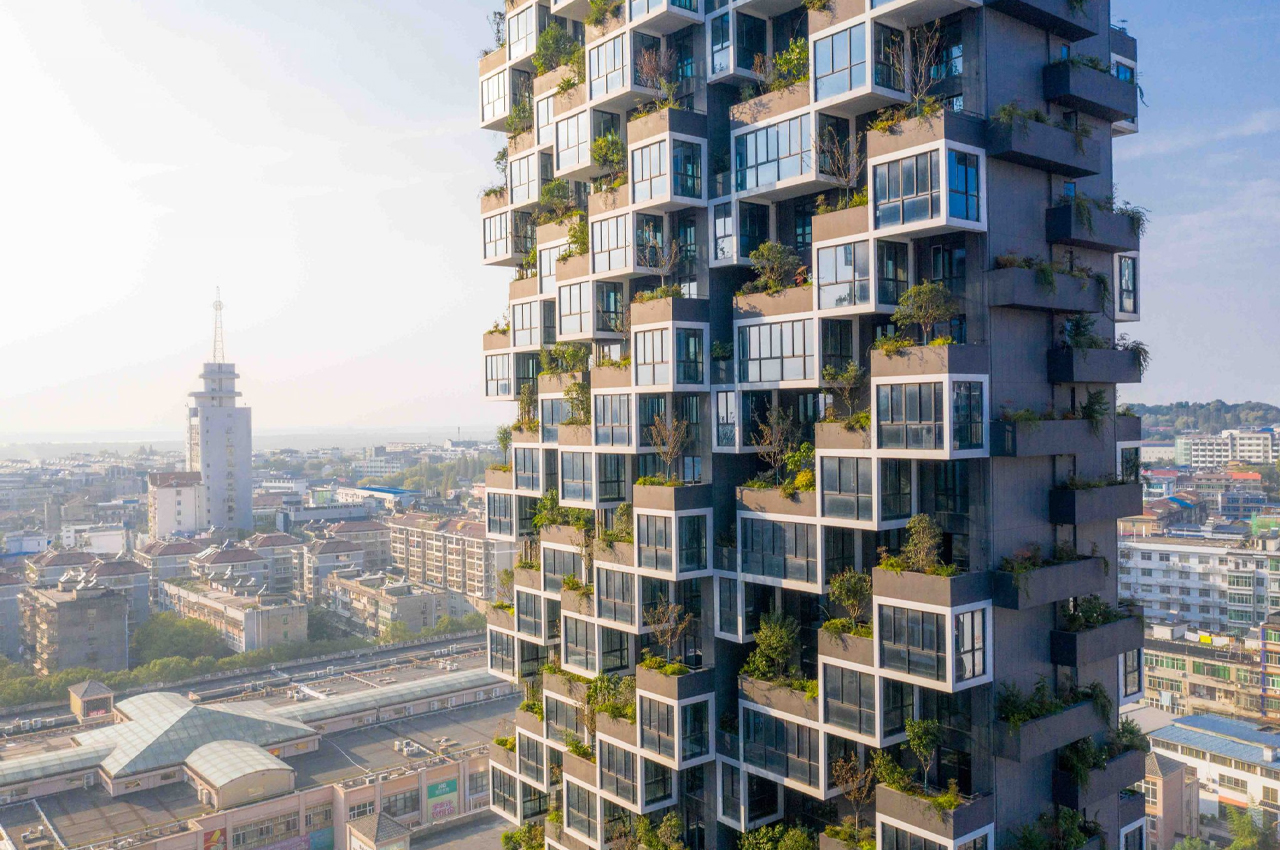
Easyhome Huanggang Vertical Forest City Complex, comprised of five sustainable green towers, was built to mitigate the effects of urbanization and fight for the environmental survival of our cities.
Why is it noteworthy?
As our cities become increasingly popular destinations for younger generations, the need to introduce sustainable and biophilic architecture has never felt more urgent. As we face urban expansion and densification, architects are taking initiative to ensure the environmental survival of our contemporary cities. Italian architect Stefano Boeri has found promise in vertical city forest complexes, a form of biophilic architecture that incorporates teeming greenery into the very structure of residential buildings. Easyhome Huanggang Vertical Forest City Complex is Boeri’s latest sustainable undertaking, a forest complex in Huanggang, Hubei, China “intended to create a completely innovative green space for the city.”
What we like
- 404 different trees fill out the layout of Easyhome, absorbing 22 tons of carbon dioxide and producing 11 tons of oxygen over the span of a year
- Increases biodiversity by attracting new bird and insect species
What we dislike
- No complaints!
7. The Pied-à-Mer


If you had to spend a sufficient amount of time on a ship, you would want to have pretty comfortable lodgings. Alas, not all of us could afford to go on luxurious cruises let alone go on a private cruise aboard a luxury line. But that doesn’t mean we can’t dream or marvel at what glorious living conditions are out there for those who can afford to do so. This pre-fabricated holiday apartment is one such thing we can only wonder about unless you can someday go aboard the largest private cruise ship in the world.
Why is it noteworthy?
Inspired by the Unite D’Habitation housing typology by Swiss-French architect and designer Le Corbusier, the Pied-à-Mer is a 600-square foot luxury holiday apartment on a private cruise ship. As expected of course, it has a nautical theme but with midcentury, modernist influences. It starts out as a one-bedroom living space but can morph into a two-bedroom space for when they get visits from friends or family members.
What we like
- Prefab design
- Nautical-inspired aesthetics
What we dislike
- No complaints!
8. Redukt’s tiny home on wheels
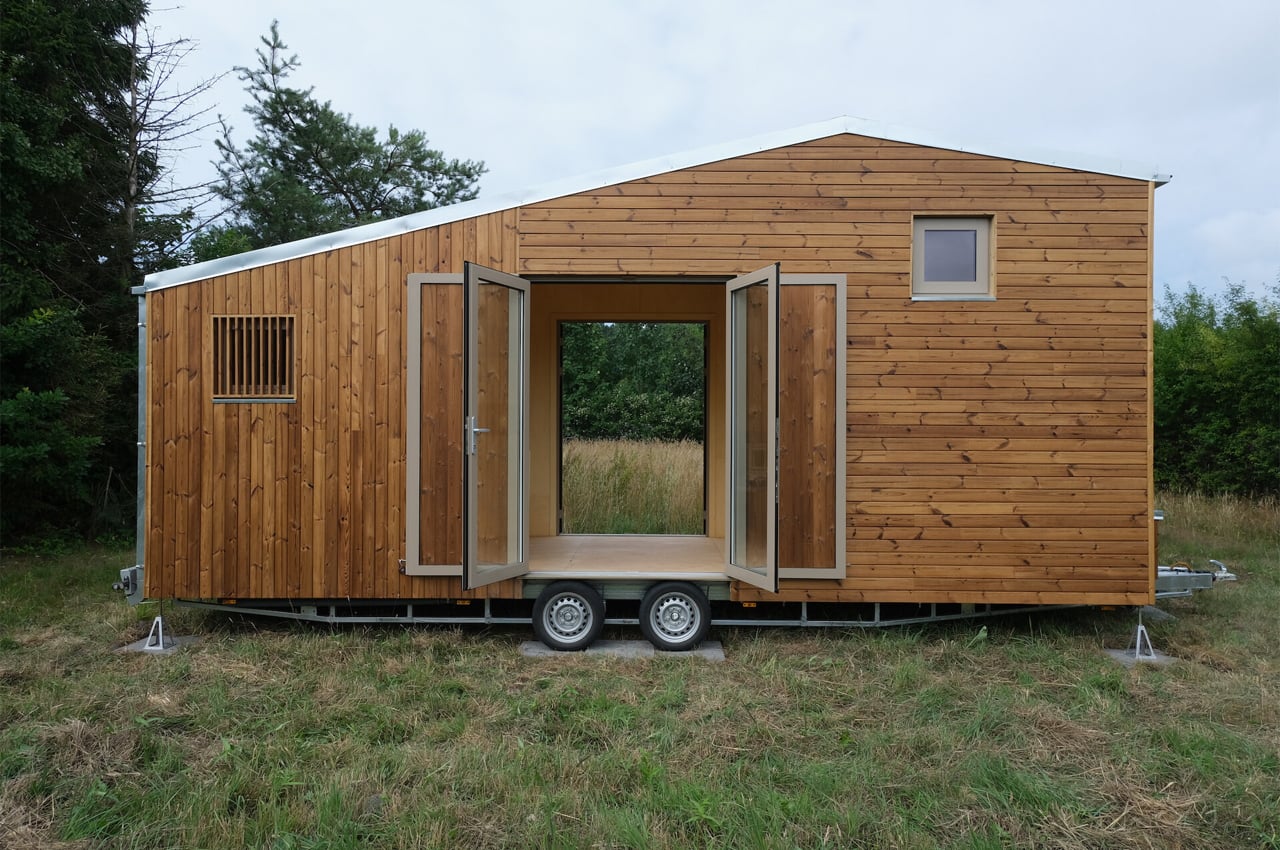
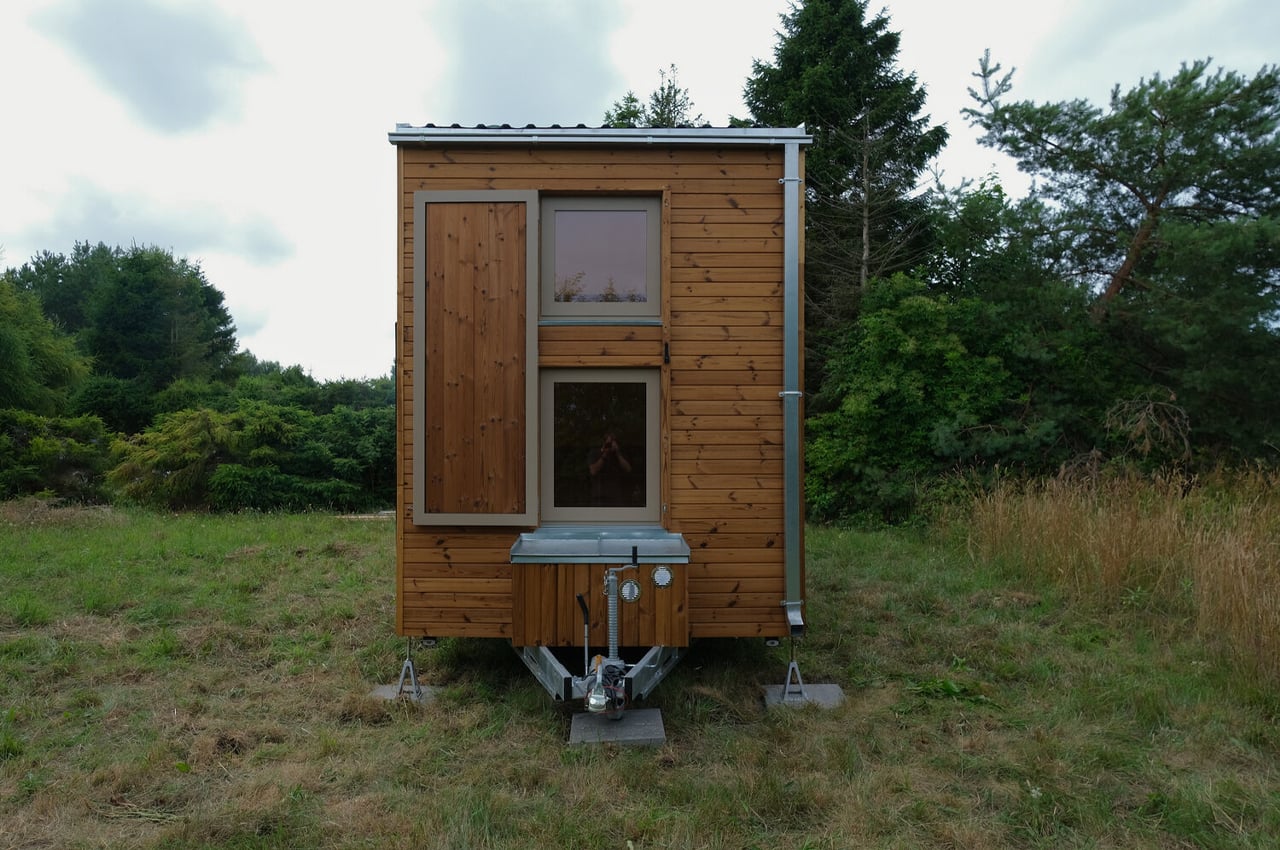
Poland-based Redukt built a tiny home on wheels that combines simplistic design with a clever layout to produce a mobile tiny home ideal for a family of four traveling through backcountry roads on a summer vacation.
Why is it noteworthy?
Poland-based Redukt, a tiny mobile home company, found sophistication and an open-plan layout through simplistic and versatile design for their off-grid-prepared tiny home on wheels. Prepared for all elements, Redukt’s tiny home on wheels is thermalized with oiled pine boards that give the home a tidy, yet natural personality. Dissolving the barrier between the outdoors and interior space, the tiny home comes with twin glass doors that are just short of reaching floor-to-ceiling heights.
What we like
- Prepared for all four seasons through the home’s roof topped off with galvanized metal sheets
- Outfitted with all the elements necessary for off-grid living
What we dislike
- No complaints!
9. St. Andrews Beach House
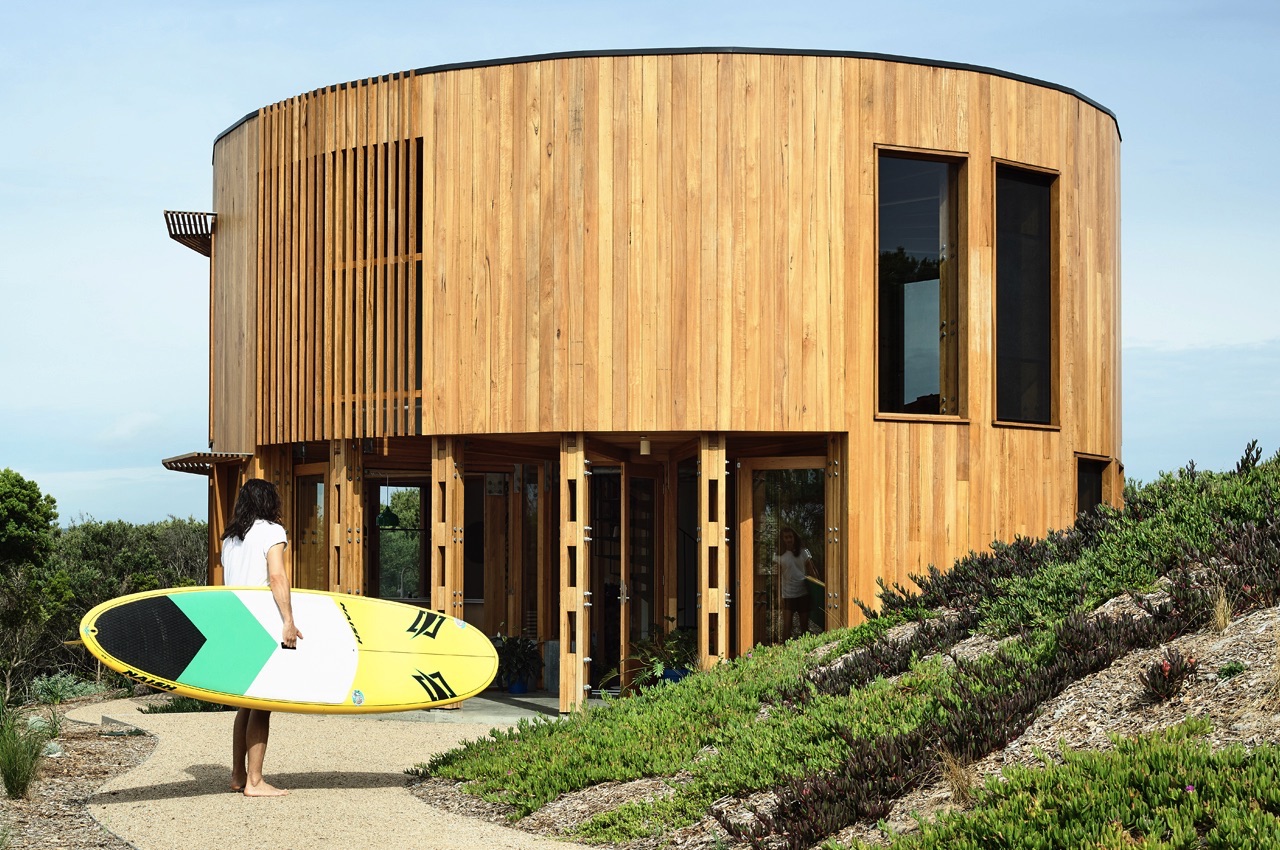
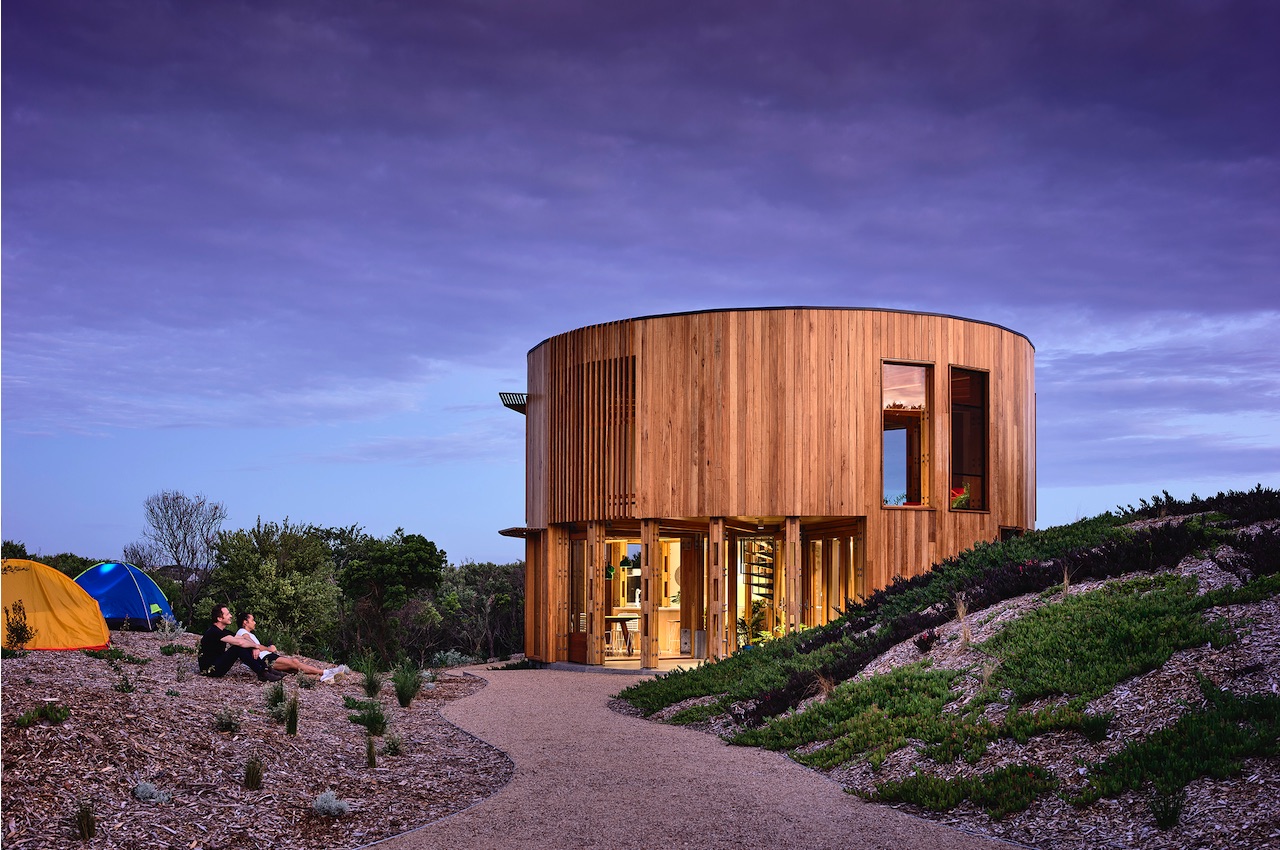
With just an hour’s drive, you can go from Melbourne to the Mornington Peninsula and spend a few days near the water in a house that doesn’t have hallways and corners.
Why is it noteworthy?
The absence of hallways isn’t just what makes this house unique. It’s a perfect circle. It’s also many things that are unusual. The location of this house alone, St. Andrews Beach, makes it already a winner. It’s an ideal coastal getaway destination which made the owners, a couple who loves the beach, decide on the property. The Andrew Maynard Architects firm was tapped to design the St. Andrews Beach house. It now stands as one of the many spectacular houses in the area. It has quickly become a popular fixture in the landscape even with its size and location, as well as, integration with the environment.
What we like
- Absence of hallways
- Unique circular form
- Built from eco-friendly materials
What we dislike
- There isn’t much to see or explore in the area – which could be an issue for some
10. SAWA
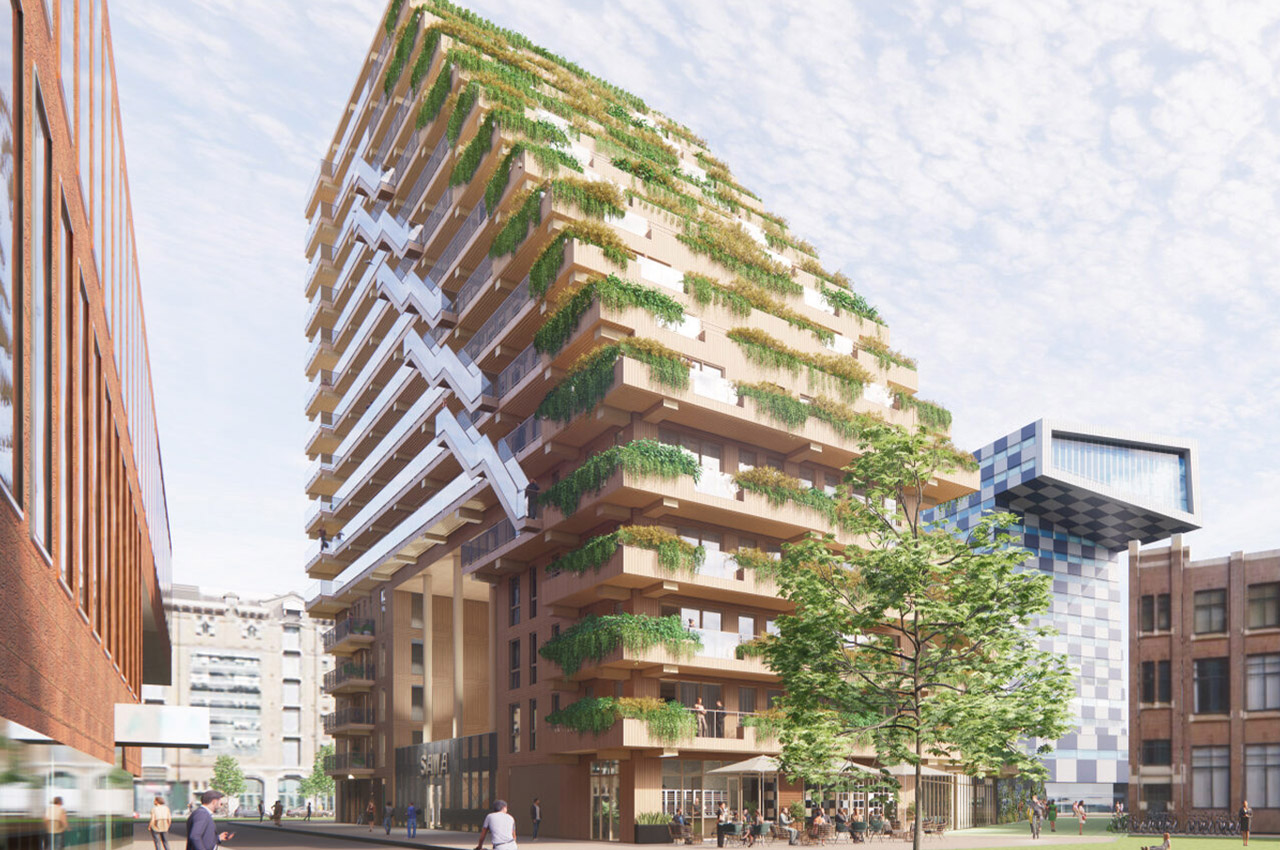
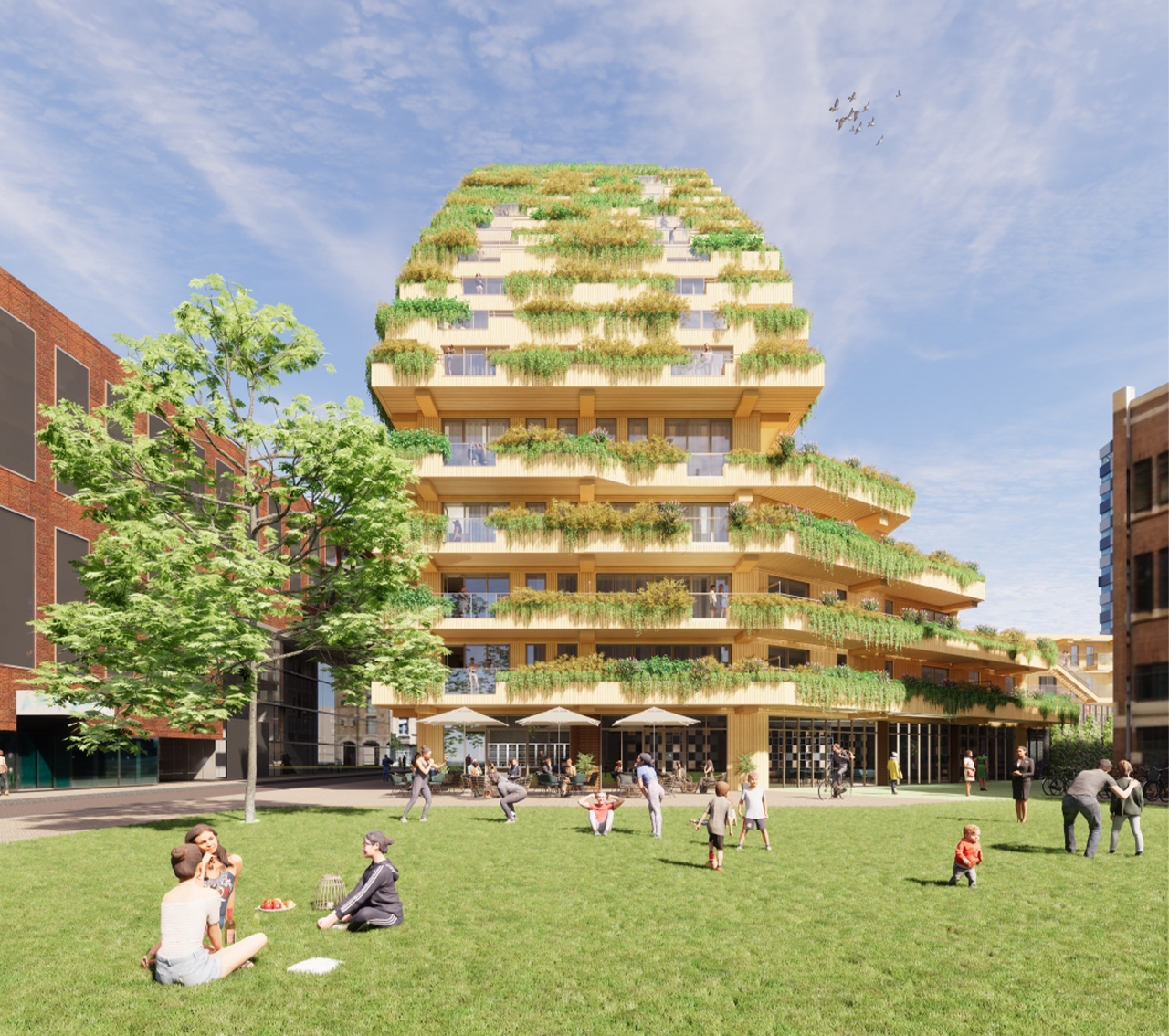
SAWA, designed by Mei Architects and Planners, won the Experimental Future Projects category in the World Architecture Festival 2021. The apartment building drips with green roofs and balcony plantings. It is also Rotterdam’s first 50-meter-high residential building. The design beat out seven other nominated projects for the top prize in the category.
Why is it noteworthy?
The building is called the healthiest building in the Netherlands. It is designed to prove that humans can live and build in a sustainable way. The plan for the building intentionally reduced the approved volume of the zoning plan model with a stepped exterior. SAWA will house about 100 apartments, with a large communal deck on the first floor plus numerous terraces. The column structure within the building allows apartments to be rearranged in the future, which helps future-proof the building for multiple uses.
What we like
- Focuses on circular timber construction, biodiversity, and healthy communities with ample planting space
- Built with an aim to reduce CO2 emissions and help achieve national and international climate goals
What we dislike
- No complaints!



